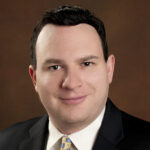Last month the U.S. Department of Transportation recommended that all 50 states and the District of Columbia ban the use of portable electronic devices. According to the National Transportation Safety Board more than 3,000 people lost their lives in distraction-related accidents. Chairman Deborah A.P. Hersman stated, “No call, no text, no e-mail is worth a human life.” However, this ban ignores the facts. Many states already restrict cell phone activities. The cause of this proposed ban was a Missouri teen who was texting while driving. In Missouri drivers under 21 are already prohibited from texting while driving. Can something already illegal become more illegal? Cell phone usage has never been proven to cause accidents. While cell-phones can be distracting, so can many other features in cars. Is the next step to ban GPS units and car radios?
Do cell phones cause accidents? Studies have shown that cell-phone usage could be a distraction; studies have shown that hand-free cell phone usage could be as big a distraction as conventional cell phones. But cell phone usage while driving HAS NEVER BEEN PROVEN to be a distraction. The studies Hersman is referring to from Canada and Australia assumed that drivers were talking on their phones the entire time that they were driving. Richard Young of Wayne State University examined these studies and found that drivers spoke on their cell phones only about 25% of the time that they were driving. Therefore Wayne concluded that talking on a cell phone while driving is no more dangerous than not talking on a cell phone while driving. The Australian and Canadian studies used after the event statistics; a better method would be to observe real world driving behavior. When emergency personal examine accidents, as a result of privacy concerns, they are not allowed to see phone records displaying whether drivers were using their phones while driving. It is challenging to determine driver behavior using after the event statistics.
Earlier this year, as a contractor, I conducted several real world behavioral studies on drivers. There were many instances of questionable driver behavior. I observed many drivers who were not wearing their seat belts; a few who seemed under the influence; several who were too focused on their Big Mac’s to pay attention to the road; a few who enjoyed their Marlboro’s a little too much; some who were listening to the radio volume so loudly that they could not have heard a fire-truck directly behind them; several turned around facing backwards as they drove forwards yelling at their children; one who was driving a car so improperly maintained it had to be restarted at every red-light; two women who were applying make-up so intently they almost hit the vehicle in front of them; several drivers who had one arm out the window; and one driver who had both arms out the window driving with one foot on the steering wheel and the other one on the gas pedal. And yes, there were several drivers who were so distracted by their cell-phones that they should not have been driving.
Cell phones can be distracting, but so can many other things. Should we eliminate all other behavior that could be distracting? We could eliminate car radios. Of course in addition to being distracting radios can help keep people alert. Eliminating car radios might increase the number of people driving while drowsy. We can ban eating and drinking; drivers might be hungry but a growling stomach is never distracting. We could ban make-up; does anybody really need it? We could ban hand-held maps and GPS systems. Drivers would spend extra time trying to reach their destination. But they would not be distracted since lost and confused drivers always focus 100% on the road. We could fine anybody who does not maintain their car to manufacturers standards. People might not be able to afford food, but their cars would work well. We could ban all passengers in vehicles; then children would never distract parents. I am not sure how kids would get to school since they also distract bus drivers. We could give every driver happy pills and then they would not be distracted from daily worries. Of course they would be driving under the influence.
There is no research that definitively proves that speaking on a cell phone while driving is more dangerous than listening to the radio or using a G.P.S. system while driving. Any one of a number of factors can cause distracted driving. It would be impossible to ban them all and beyond absurd to enforce them all. I understand NTSB’s desire to have safer roads. Increasing safety is NTSB’s goal. However, there are better ways to improve safety than a ban on all electronic communication devices. NTSB should start with public information campaigns better targeting certain age groups. If texting and or cell phone usage is illegal for teens in most states, but teens continue to use these devices, the U.S. does not need more laws but better enforcement and more information explaining the existing laws. NTSB also should conduct detailed field safety research, to study actual driving conditions not theoretical lab studies. This decision is an overreach not supported by facts, but by the desire to show NTSB is doing something about the problem.
